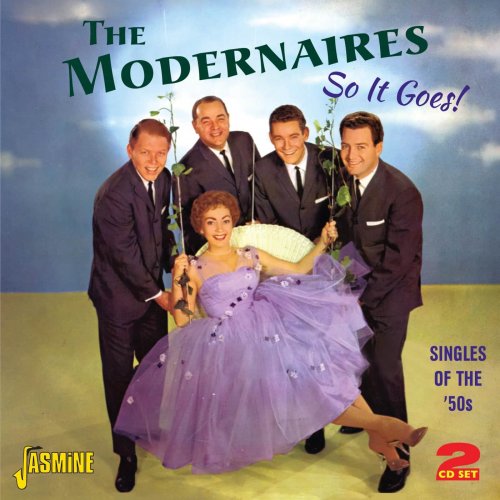Iveta Apkalna, Latvian National Symphony Orchestra & Andris Poga - Ķeniņš: Symphonies Nos. 5 & 8 and Aria per corde (2022) [Hi-Res]
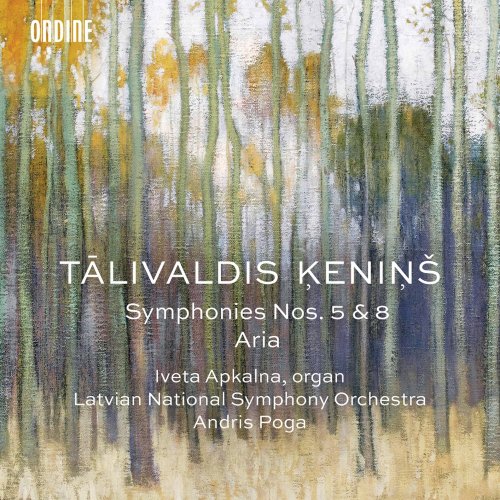
Artist: Iveta Apkalna, Latvian National Symphony Orchestra, Andris Poga
Title: Ķeniņš: Symphonies Nos. 5 & 8 and Aria per corde
Year Of Release: 2022
Label: Ondine
Genre: Classical
Quality: FLAC (tracks) / 24bit-96kHz FLAC (tracks+booklet)
Total Time: 52:44
Total Size: 193 / 909 MB
WebSite: Album Preview
Tracklist:Title: Ķeniņš: Symphonies Nos. 5 & 8 and Aria per corde
Year Of Release: 2022
Label: Ondine
Genre: Classical
Quality: FLAC (tracks) / 24bit-96kHz FLAC (tracks+booklet)
Total Time: 52:44
Total Size: 193 / 909 MB
WebSite: Album Preview
1. Symphony No. 5: I. Molto animato (2:15)
2. Symphony No. 5: II. Doppio lento (5:21)
3. Symphony No. 5: III. Largo espressivo (6:26)
4. Symphony No. 5: IV. Vivace e con fuoco (6:22)
5. Symphony No. 8 for Organ & Orchestra "Sinfonia concertata": I. Moderato (6:55)
6. Symphony No. 8 for Organ & Orchestra "Sinfonia concertata": II. Chorale. Largo (9:53)
7. Symphony No. 8 for Organ & Orchestra "Sinfonia concertata": III. Toccata (7:04)
8. Aria per corde (8:30)
This third album release in the first complete Tālivaldis Ķeniņš (1919–2008) symphony cycle includes the composer’s final symphonic creation, Symphony No. 8, with a remarkable organ solo part performed by the award-winning organist Iveta Apkalna, alongside the composer’s dramatic and concise 5th Symphony, both conducted by Andris Poga and performed by the Latvian National Symphony Orchestra.
Tālivaldis Ķeniņš (1919–2008), one of Latvia’s most prominent composers, wrote an impressive cycle of eight numbered symphonies. Although born in Latvia, Ķeniņš lived most of his life as an exile. He was educated in Paris, where he studied under Tony Aubin and Olivier Messiaen, and won several awards. Ķeniņš emigrated to Canada in 1951 and became a respected pedagogue and a very influential figure in Canada’s music life. Especially the 1970s and the 1980s were fruitful years to Ķeniņš as a symphonist: both Ķeniņš’ 5th and 8th Symphonies were premiered in Toronto, the previous in 1976 and the latter in 1986. Ķeniņš 5th Symphony starts with a powerful orchestral climax and it is a work with dark undercurrents. However, here the composer balances with two different opposite materials: the robust, contemporary world meets a fairy tale landscape glittering with the magic of dusk in the Latvian countryside. The Symphony No. 8 lends itself to analysis but not to description. In this work, Ķeniņš has quite possibly attained his highest metaphysical peak. From the storms of the first part and some longed for unattainability, through the second part’s luminous chorale to the finale of the third part with its eight double and triple beats, concluding with a single beat and transcendence. This symphony-concerto for organ and orchestra calls for a combination of masterful solo organ skills. In addition to excellent technique and a deep understanding of complex forms, a fine sense of the organ’s registers is also required, so that the organ part can both blend and shine in a surprising balance of musical pattern and orchestral instrumentation.
Latvian organist Iveta Apkalna is considered as one of the leading instrumentalists in the world. Since 2017 she has served as the titular organist of the Klais organ at the Elbphilharmonie in Hamburg, Germany. Iveta Apkalna regularly performs in Europe’s, North America’s and China’s most renowned concert venues. Apkalna was appointed as cultural ambassador of Latvia by receiving the Excellence Award in Culture 2015 from the Latvian Ministry of Culture. She became the first organist ever to receive the title of Best Performing Artist award at the 2005 ECHO Klassik awards.
The Latvian National Symphony Orchestra is one of the cornerstones of Latvian national culture, its history spans almost a century. The LNSO is a six-time winner of the Latvian Grand Music Award. Since 2013, the music director of the LNSO is maestro Andris Poga, a conductor sought after by top orchestras from around the world. The orchestra’s most notable former music directors include Jānis Mediņš, Leonīds Vīgners, Edgars Tons, Vassily Sinaisky, Olari Elts, and Karel Mark Chichon. Guntis Kuzma has been the orchestra’s conductor since the 2014/15 season and is the orchestra’s former principal clarinetist.
Andris Poga is the Chief Conductor of the Stavanger Symphony Orchestra since 2021/22 season. He was the Music Director of the Latvian National Symphony Orchestra (LNSO) from 2013 till 2021 and will continue to collaborate with the LNSO as its Artistic Advisor. He is frequent guest conductor with the leading orchestras of Germany, France, Italy, Japan and Scandinavia. After the first successful collaborations he has been invited back to the Tonhalle-Orchester Zürich, DSO Berlin, NDR Elbphilharmonie Orchester Hamburg, Gewandhausorchester Leipzig, SWR Symphony Stuttgart, WDR Sinfonieorchester, NHK Symphony Orchestra Tokyo and many others. He has also conducted the Wiener Symphoniker, Saint Petersburg Philharmonic, Accademia Nazionale di Santa Cecilia, Orchestre National de France, Royal Philharmonic Orchestra, Hong Kong Philharmonic, Sydney Symphony.
Tālivaldis Ķeniņš (1919–2008), one of Latvia’s most prominent composers, wrote an impressive cycle of eight numbered symphonies. Although born in Latvia, Ķeniņš lived most of his life as an exile. He was educated in Paris, where he studied under Tony Aubin and Olivier Messiaen, and won several awards. Ķeniņš emigrated to Canada in 1951 and became a respected pedagogue and a very influential figure in Canada’s music life. Especially the 1970s and the 1980s were fruitful years to Ķeniņš as a symphonist: both Ķeniņš’ 5th and 8th Symphonies were premiered in Toronto, the previous in 1976 and the latter in 1986. Ķeniņš 5th Symphony starts with a powerful orchestral climax and it is a work with dark undercurrents. However, here the composer balances with two different opposite materials: the robust, contemporary world meets a fairy tale landscape glittering with the magic of dusk in the Latvian countryside. The Symphony No. 8 lends itself to analysis but not to description. In this work, Ķeniņš has quite possibly attained his highest metaphysical peak. From the storms of the first part and some longed for unattainability, through the second part’s luminous chorale to the finale of the third part with its eight double and triple beats, concluding with a single beat and transcendence. This symphony-concerto for organ and orchestra calls for a combination of masterful solo organ skills. In addition to excellent technique and a deep understanding of complex forms, a fine sense of the organ’s registers is also required, so that the organ part can both blend and shine in a surprising balance of musical pattern and orchestral instrumentation.
Latvian organist Iveta Apkalna is considered as one of the leading instrumentalists in the world. Since 2017 she has served as the titular organist of the Klais organ at the Elbphilharmonie in Hamburg, Germany. Iveta Apkalna regularly performs in Europe’s, North America’s and China’s most renowned concert venues. Apkalna was appointed as cultural ambassador of Latvia by receiving the Excellence Award in Culture 2015 from the Latvian Ministry of Culture. She became the first organist ever to receive the title of Best Performing Artist award at the 2005 ECHO Klassik awards.
The Latvian National Symphony Orchestra is one of the cornerstones of Latvian national culture, its history spans almost a century. The LNSO is a six-time winner of the Latvian Grand Music Award. Since 2013, the music director of the LNSO is maestro Andris Poga, a conductor sought after by top orchestras from around the world. The orchestra’s most notable former music directors include Jānis Mediņš, Leonīds Vīgners, Edgars Tons, Vassily Sinaisky, Olari Elts, and Karel Mark Chichon. Guntis Kuzma has been the orchestra’s conductor since the 2014/15 season and is the orchestra’s former principal clarinetist.
Andris Poga is the Chief Conductor of the Stavanger Symphony Orchestra since 2021/22 season. He was the Music Director of the Latvian National Symphony Orchestra (LNSO) from 2013 till 2021 and will continue to collaborate with the LNSO as its Artistic Advisor. He is frequent guest conductor with the leading orchestras of Germany, France, Italy, Japan and Scandinavia. After the first successful collaborations he has been invited back to the Tonhalle-Orchester Zürich, DSO Berlin, NDR Elbphilharmonie Orchester Hamburg, Gewandhausorchester Leipzig, SWR Symphony Stuttgart, WDR Sinfonieorchester, NHK Symphony Orchestra Tokyo and many others. He has also conducted the Wiener Symphoniker, Saint Petersburg Philharmonic, Accademia Nazionale di Santa Cecilia, Orchestre National de France, Royal Philharmonic Orchestra, Hong Kong Philharmonic, Sydney Symphony.
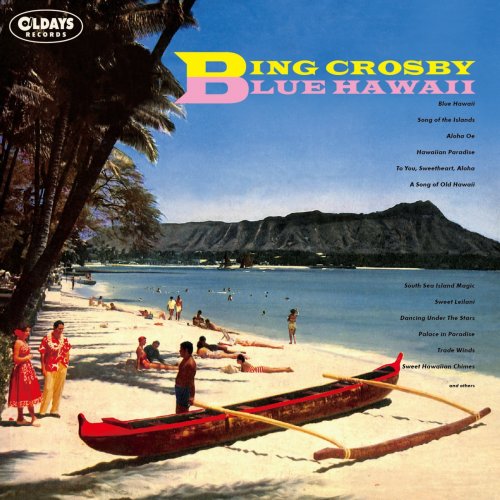

![Machito and His Orchestra - Irving Berlin in Latin America (Remastered Edition 2025) [Hi-Res] Machito and His Orchestra - Irving Berlin in Latin America (Remastered Edition 2025) [Hi-Res]](https://www.dibpic.com/uploads/posts/2025-12/1765784965_moib.jpg)
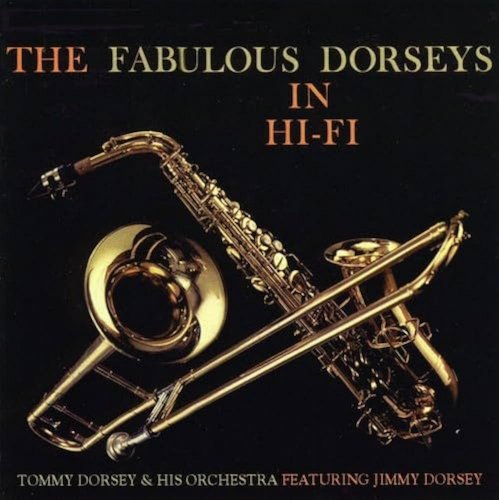
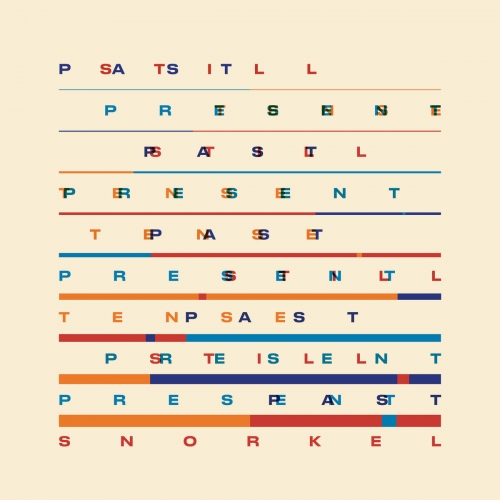
![Demo Rumudo - Second Nature (2025) [Hi-Res] Demo Rumudo - Second Nature (2025) [Hi-Res]](https://www.dibpic.com/uploads/posts/2025-12/1765883076_cover.jpg)
![Sibel Köse Septet - In Good Company (2025) [Hi-Res] Sibel Köse Septet - In Good Company (2025) [Hi-Res]](https://www.dibpic.com/uploads/posts/2025-12/1765846644_uizwujac4ht2d_600.jpg)
